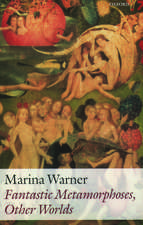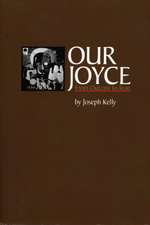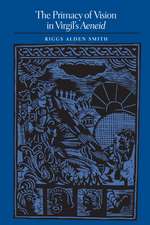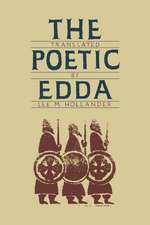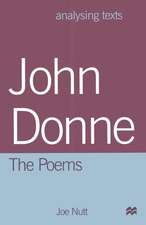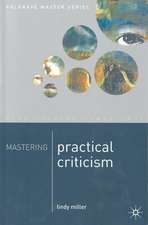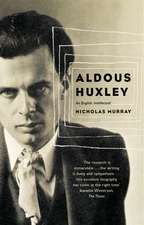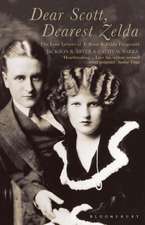Kant and the Southern New Critics
Autor William J. Handyen Limba Engleză Paperback – 1963
William J. Handy, a former student of John Crowe Ransom, himself a critic of note, reveals the inadequacy of logical concept to represent the full quality of human experience. In Kant and the Southern New Critics he discusses the theories and practices of some pioneers of philosophical criticism—John Crowe Ransom, Allen Tate, Cleanth Brooks, and others—and traces the influence of the Kantian generative idea on their assumption that a work of art is the celebration of one’s qualitative experience.
Critics in the new school believe that knowledge of experience is distorted when abstracted into scientific, quantitative notations, and that the artist, to portray things in their more natural state, must employ particulars in order to achieve “universals.” Knowledge of any subject or object must include the aesthetic qualities of imagination and emotion that cannot be discovered through analysis.
This study explores Ransom’s theory of “ontological criticism.” The basic difference in symbols representing things and those representing ideas was discerned by Kant, who distinguished between understanding (analysis of an object in order to classify it)and imagination (realization of an object undistorted by logical reduction). Handysuggests that ontological structure requires a writer to use the logic that springs from his image-making faculty—a thought also expressed by T. S. Eliot, who says, “The only way of expressing emotion in the form of art is by finding an ‘objective correlative.’ ”
The discipline of philosophical aesthetics is necessary for the critic, Handy says, if his principles are to be substantial enough to make a significant contribution to knowledge of literary theory. This book clearly delineates the origins of a philosophical approach and leads the reader to an appreciation of the deeper enjoyment and meaning it can give to literary experience.
Preț: 163.09 lei
Nou
Puncte Express: 245
Preț estimativ în valută:
31.25€ • 32.90$ • 25.79£
31.25€ • 32.90$ • 25.79£
Carte tipărită la comandă
Livrare economică 23 ianuarie-06 februarie 25
Preluare comenzi: 021 569.72.76
Specificații
ISBN-13: 9780292741102
ISBN-10: 0292741103
Pagini: 126
Dimensiuni: 152 x 229 x 15 mm
Greutate: 0.45 kg
Editura: University of Texas Press
Colecția University of Texas Press
ISBN-10: 0292741103
Pagini: 126
Dimensiuni: 152 x 229 x 15 mm
Greutate: 0.45 kg
Editura: University of Texas Press
Colecția University of Texas Press
Notă biografică
William J. Handy (1938–1991) was Professor of English at the University of Oregon.
Cuprins
- Preface
- Acknowledgments
- 1. Science, Literature, and Modern Criticism
- 2. The Ontological Theory of the Ransom Critics
- 3. The Formalists’ Approach: A Re-evaluation
- 4. Imagination and Understanding: Contemporary Versions
- 5. Literature as Knowledge
- 6. From Poetry to Fiction: Criticism through Structure
- Bibliography
- Index
Descriere
The theories and practices of some pioneers of philosophical criticism—John Crowe Ransom, Allen Tate, Cleanth Brooks, and others—and the influence of the Kantian generative idea on their assumption that a work of art is the celebration of one’s qualitative experience.

